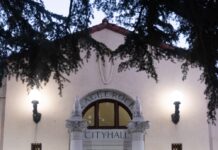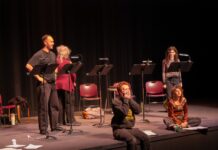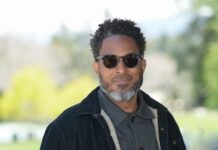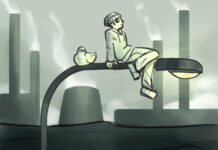A student gets his ID out of his car at the request of Campus Safety. As he turns to pick up his ID, a Campus Safety officer asks “Are you being aggressive?” The student replies, “No, don’t touch me.”
Soon after, multiple officers tackle the student to the ground and put him into a chokehold. “No, you calm down,” “You tackled me for no reason,” “Bro, get off of me,” “I can’t breathe,” says the student. The video ends with the student — a black male — still pinned onto the ground. I only knew about this strikingly familiar occurrence of police brutality after C.O.D.E. discussed the incident at the teach-in Sept. 24.
It happened spring semester last year here at Occidental.
In order to prevent incidents like these, C.O.D.E. presented a series of demands to increase communication and accountability from the Dean of Students Office and Campus Safety Sept. 18. The organization asked to hear from the administration about the Green Bean incident by Sept. 25. The day of C.O.D.E.’s deadline, Dean Avery responded in a school-wide email.
The intersectionality between racism, ableism and ageism inherent in the instances of police brutality on campus were not addressed in enough detail in the administration’s response. Given incidents like the aforementioned scenes on campus, as well as the fact that I and many other students had no idea that the spring semester incident happened in the first place, I can say that I am far from happy with the response to C.O.D.E. demands.
The email response from then-Vice President for Student Affairs and Dean of Students Barbara Avery — who stepped down from the vice president position Sept. 30 — reaffirms that Occidental cares about students’ well-being, but failed to address exactly how the administration will care for us. Even with Occidental’s obligation to release the annual Clery Report, I’m still not confident in future steps toward transparency and increased trust between Campus Safety, administrators and students.
I agreed with Avery’s statement: visibility is critical to serving the community and deterring crime. While I appreciate the sentiment, I do not appreciate the lack of concrete strides toward this visibility. Avery’s response not only neglected the topic of race, but of ability as well. The pressing concern over whether the man was differently abled or not, raised by many students, was shoved into a singular statement.
“Campus Safety officers are not experts in evaluating an individual’s mental or physical state, and in line with their training asked for help from the Los Angeles Fire Department at the Green Bean,” Avery said in her email.
While I agree that Campus Safety officers are not experts in working with differently abled individuals, the email did not address future steps on how officers can become better in such situations, especially when differences are not clearly visible. If this man had a more conspicuous disability, I question whether Campus Safety would have called the Los Angeles Police Department (LAPD). Mental differences are just as valid as any physical ones, and it is unacceptable for Occidental to lack explicit steps to address them.
C.O.D.E. Core member Abhilasha Bhola (senior) said that the response to the demands further demonstrates a lack of transparency between administrators and students. A student advisory group is working with Campus Safety, but it is unclear who is in this group or how they were chosen for the task. I agree with Dean Avery’s statement that Occidental needs to “institutionalize practices that build trust and make it possible for Campus Safety officers to carry out what is a challenging job,” because students have to not only be heard, but listened to. But despite this promise, Dean Avery did not respond to several attempts for comment.
Occidental is no stranger to instances of police brutality and it would be counterproductive to avoid discussing the significance of them. While tension may remain between C.O.D.E. and the administration, problems emerging because of the Green Bean incident are ones that cannot be ignored. It would benefit both parties to work through their differences in order to better Occidental. Racism, ableism and ageism exist in all our lives — whether as undertones or direct daily oppressors. The Green Bean incident envelops the intersectionality between all three.
![]()
































Emily Gao “had no idea that the spring semester incident happened” yet is unhappy with the administration’s response to an issue she herself has only recently become aware of. I know nothing about Emily’s habits for staying informed on campus events, but she does appear to be affiliated with the college’s official student publication (The Occidental Weekly). Using an excuse of ignorance reflects poorly on this publication. Where in these pages can I find a journalistic account of the “spring semester incident”? It certainly sounds newsworthy, yet the small smattering of facts of the story only appear in an editorial that is bloated with talk about intersectionality and complaints by C.O.D.E. members.
Less editorializing, more journalism, dear Occidental Weekly.
Hi! We hyperlinked the video for your viewing. Sorry about that.
Many people with disabilities consider “differently-abled” to be an offensive term that does far more to marginalize and otherize the individual being characterized. It’s euphemistic (diminishing people’s actual experiences with disabilities that might include significant intellectual or physical challenges). Aside from reinforcing the idea of “difference” and one human or normal way to be “abled,” the term increases stigma against people with disabilities by essentially discouraging meaningful discussion regarding their disability and dismissing an individual’s challenges as a social construction that does not really exist. This is not useful language and reinforces the oppression of people with disabilities.